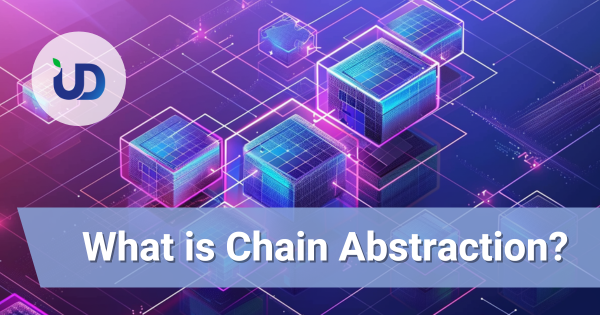What is Chain Abstraction? Simplifying the Web3 Experience
Chain abstraction is an emerging concept in the blockchain space, aiming to simplify interactions with decentralized systems. As Web3 evolves, users face numerous challenges such as managing multiple wallets, switching networks, and handling gas fees—all of which create barriers to mainstream adoption. This article seeks to demystify chain abstraction and demonstrate how it enhances user experience by reducing technical barriers and unifying fragmented processes.
Understanding Chain Abstraction
Definition of Chain Abstraction
Chain abstraction is a technological framework that enables seamless interaction with multiple blockchains through a single interface. By abstracting the complexities of each blockchain, it allows users to engage with decentralized applications (dApps) effortlessly, without needing in-depth knowledge of underlying protocols.
The Problem of Fragmentation
The current blockchain ecosystem is highly fragmented, with hundreds of blockchains offering diverse functionalities and protocols. For users, this translates to managing multiple wallets, tracking different tokens, and frequently switching networks—a daunting task even for tech-savvy individuals. Chain abstraction addresses this issue by unifying interactions, creating a smoother and more intuitive experience.
How Chain Abstraction Works
Mechanics of Chain Abstraction
Chain abstraction integrates multiple blockchain networks into a unified system, leveraging advanced middleware to automate processes such as:
Token Bridging: Seamlessly moving assets across blockchains without manual intervention.
Gas Fee Optimization: Automatically selecting and paying the most cost-effective gas fees.
Network Switching: Ensuring users interact with the appropriate blockchain without manual adjustments.
User Journey Example
Imagine a user engaging with a DeFi application:
The user initiates a token swap from Chain A to Chain B.
The platform automatically handles the bridging process, optimizing the route for cost and speed.
Gas fees are calculated and deducted without requiring the user to hold native tokens for each chain.
The user receives the tokens on Chain B seamlessly, with no manual steps involved.
Benefits of Chain Abstraction
Simplified User Experience
Chain abstraction eliminates the need for users to understand blockchain-specific details, reducing the learning curve and making Web3 more accessible. New users can interact with dApps as easily as they would with traditional web applications.
Increased Adoption
By providing an intuitive and seamless experience, chain abstraction lowers the barrier to entry for non-technical users, driving broader adoption of Web3 technologies and applications.
Enhanced Liquidity and Efficiency
Unified cross-blockchain interactions improve liquidity, enabling smoother token transfers and transactions, thereby benefiting both users and developers.
Real-World Applications and Innovations
Current Implementations
Projects like LayerZero, Axelar, and Connext are at the forefront of developing chain abstraction technologies. These platforms offer cross-chain messaging, seamless token transfers, and interoperable dApps, showcasing the tangible benefits of chain abstraction.
Future Prospects
As the blockchain ecosystem evolves, chain abstraction may include:
AI-Driven Optimization: For transaction routes and gas fee management.
Deeper Interoperability: Supporting emerging blockchain protocols.
Enhanced User Interfaces: Further simplifying the Web3 experience.
Challenges and Considerations
Technical Challenges
Developing chain abstraction solutions requires advanced technical expertise. Ensuring compatibility with diverse blockchain protocols and maintaining scalability are ongoing hurdles.
Security Concerns
Abstracting complexities may introduce security risks, such as vulnerabilities in the middleware layer. Robust cryptographic techniques and continuous audits are essential to mitigate these risks.
Chain abstraction plays a pivotal role in enhancing Web3 usability and accessibility. By unifying fragmented processes and simplifying interactions, it paves the way for mainstream blockchain adoption. If you’re curious about chain abstraction, explore platforms implementing these solutions to experience the benefits firsthand.
UD is a leading blockchain and network security solution provider in Hong Kong
We are dedicated to assisting enterprises in advancing their businesses through innovative blockchain technology, ushering from Web 2.0 to Web 3.0





